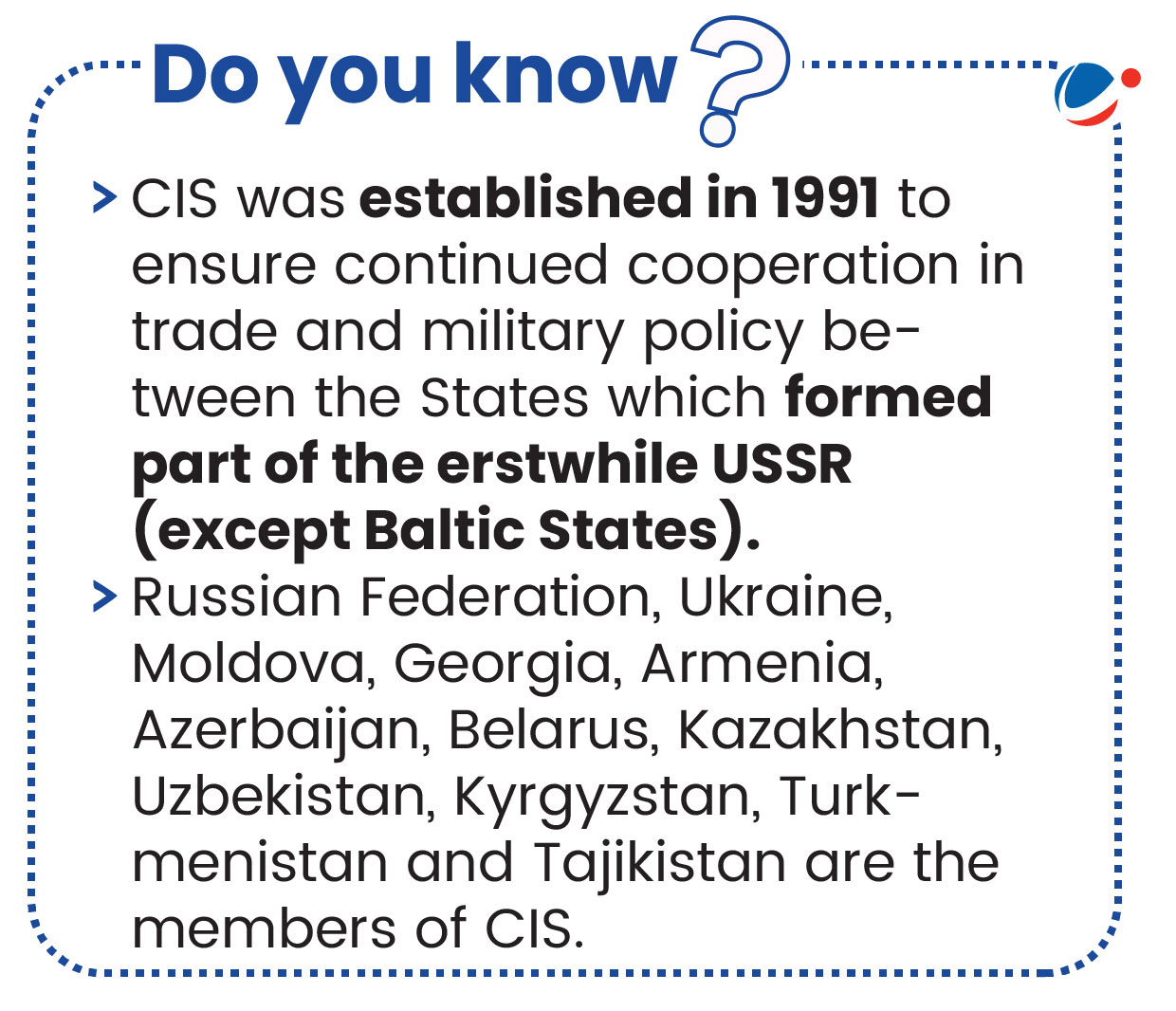Why in the News?
The 25th Shanghai Cooperation Organization (SCO) Summit 2025, held in Tianjin, China.
Prime Minister of India emphasized that the SCO rests on three essential pillars —security (Security of the Region), connectivity (Revolutionizing SCO as a 'connectivity' hub), and opportunity (Nourishing Mutual Opportunities). |
More on the News
- The Summit concluded with the adoption of the Tianjin Declaration.
- SCO Chairmanship for 2025–2026 Passed to the Kyrgyz Republic.
- SCO Members also adopted the SCO Development Strategy until 2035.
- Merger of dialogue partners and observers has been done into a new category i.e. SCO partner countries.
- Laos has been admitted as a partner country; SCO now has 27 countries (10 members + 17 partners).
- SCO was granted Observer status with the Commonwealth of Independent States (CIS).

Key Outcomes of the SCO Summit
- Security & Counter-Terrorism
- Condemnation of the terrorist attack in Pahalgam, Jammu & Kashmir.
- Inclusion of Pahalgam is strategic victory in the context of China's historical tendency to leverage its influence in international fora to shield Pakistan from criticism.
- Emphasis on adopting the Comprehensive Convention on International Terrorism (CCIT) proposed by India.
- CCIT is a proposed UN treaty initiated by India in 1996 that aims to provide a universal legal framework to criminalize and suppress all forms of terrorism.
- Agreement on establishing an SCO Anti-Drug Centre and a Universal Center for Countering Security Threats.
- Condemnation of the terrorist attack in Pahalgam, Jammu & Kashmir.
- Global Governance & Trade
- Endorsement of Global Governance Initiative (GGI) proposed by China.
- Initiative advocates true multilateralism, based on sovereign equality, respect for international law and broad-based consultation moving beyond an era dominated by Western powers.
- Steps toward establishing an SCO Export Credit and Investment Mechanism and SCO Development Bank.
- SCO Development Bank aims to fund infrastructure and development projects across the bloc; it also aims to offer Eurasia a non-dollar, low-conditionality alternative to Western finance e.g. World Bank.
- Endorsement of Global Governance Initiative (GGI) proposed by China.
- Technological Cooperation
- Permission for SCO members to use China's BeiDou navigation system (BDS).
- BDS is a global satellite navigation system, providing Positioning, Navigation, and Timing (PNT) services to users worldwide. It is an alternative to the US GPS.
- Permission for SCO members to use China's BeiDou navigation system (BDS).
- Other Key Outcomes:
- Recognized India's global vision of "One Earth, One Family, One Future," reaffirming the country's leadership in promoting inclusive and sustainable development.
- India proposed a Civilisation Dialogue Forum to enhance cultural diplomacy, people to people exchange and soft power.
Conclusion
By advancing cooperation in security, technology, etc., the summit laid the groundwork for a more dynamic and effective SCO. It reflects members' shared commitment to uphold collective interests and adapt the organization to emerging global and regional challenges.







